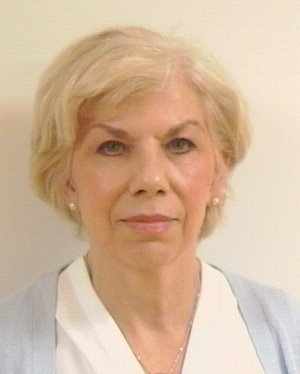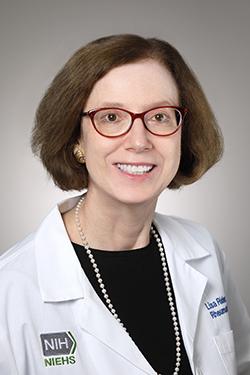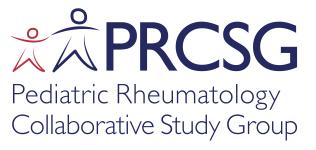About Us
The Pediatric Rheumatology Collaborative Study Group (PRCSG), founded in 1973, is a consortium of over 80 academic clinical pediatric rheumatology centers in the United States and Canada. The chief aim of the PRCSG is to conduct high quality clinical trials of therapeutic agents in children with rheumatic diseases.
The mission of the PRCSG is to conduct high quality clinical trials, of therapeutic agents, in children with rheumatic diseases.
The network is actively involved with regulatory authorities and industry sponsors to advance clinical trial design and develop clinical trial outcome measures for less common pediatric rheumatic diseases.
 Chairman and Scientific Director
Cincinnati Children’s Hospital Medical Center
Chairman and Scientific Director
Cincinnati Children’s Hospital Medical Center






The centralized Coordinating Center manages all administrative, financial, regulatory and scientific matters related to the PRCSG. Our system is registered by Eagle Registrations Inc. for International Organization for Standardization (ISO) 9001:2015. To see a Description of Services, click here.
The PRCSG has completed, or is currently in the process of conducting, a total of more than 45 trials in children with juvenile idiopathic arthritis (JIA), systemic lupus erythematosus, vasculitis and familial Mediterranean fever. In addition, the PRCSG has performed and published many studies on methodological issues and secondary analyses of trial databases. The PRCSG has performed the vast majority of trials of medications for JIA in North America since 1977.
Drugs previously tested include:
-
- Abatacept
- Adalimumab
- Anakinra
- Baricitinib
- Belimumab (IV and SC)
- Canakinumab
- Certolizumab Pegol
- D-penicillamine
- Etanercept
- Golimumab
- Hydroxychloroquine
- Infliximab
- Intravenous immunoglobulin
- Methotrexate
- Naproxen/Esomeprazole
- NSAIDs & selective Cox2 inhibitors
- Rilonacept
- Secukinumab
- Tocilizumab
- Tofacitinib
- Upadacitinib
- Ustekinumab
For the earliest studies of the PRCSG, Drs. Brewer and Giannini lead the effort. Since 1991 including all of the trials of biologic agents, the efforts were led by Drs. Lovell and Giannini, and more recently Dr. Brunner, who have served as the designers and coordinators of the studies as well as overseeing data analysis and publications. Numerous secondary analyses that used data generated in the initial studies have provided meaningful answers to important clinical questions. These investigators developed and validated the currently accepted measures of clinical response and flare used in clinical trials involving children with JIA. These definitions of clinical response and flare were approved by both the FDA and EMA and were successfully utilized in the trial of the TNF-a blocker, etanercept, in children with severe JIA and in all JIA clinical trials submitted for regulatory approval since then.
These same investigators also designed and performed the validation study of the Childhood Myositis Assessment Scale and have been actively involved in the definition of core sets of outcome measures and definitions of improvement for children with Juvenile Idiopathic Inflammatory Myopathies and childhood onset SLE. This work was done in collaboration with the Pediatric Rheumatology InterNational Trials Organization (PRINTO). Recently, the PRCSG, in collaboration with PRINTO and the Childhood Arthritis and Rheumatology Research Alliance (CARRA) developed a preliminary definitions of clinical inactive disease and clinical remission for children with JIA.
The PRCSG and PRINTO are working together to advance research and treatments for children with rheumatic diseases. To foster this relationship, a Memo of Understanding exists with PRINTO.
The PRCSG emerged as a pediatric rheumatology research network in 1973 Indeed, Dr. Brewer, along with colleagues, officially formed the Pediatric Rheumatology Collaborative Study Group (PRCSG) whose chief goal was to conduct scientifically valid studies of promising new anti-inflammatory and disease modifying agents in children in order that they may be labeled for use in pediatric patients. Dr. Brewer was named the first Chairman of the group and is considered its founding father. Just 4 years later the PRCSG published its first study (Levinson JE, Baum J, Brewer EJ, Fink C, Hanson V, Schaller J: Comparison of tolmetin and aspirin in the treatment of juvenile rheumatoid arthritis. J Pediatr 1977, 91:799-804).
A Coordinating Center was formed that would oversee the design and progress of the studies, retrieve, manage and report the data, and assure compliance with applicable regulatory affairs. In 1976 Dr. Edward Giannini, an epidemiologist and biostatistician, was named the Senior Scientist for the group and founded the PRCSG Coordinating Center at Texas Children’s Hospital. The Coordinating Center moved to Cincinnati Children’s Hospital in 1990.
An Advisory Council was formed to oversee the direction and operation of the growing consortium, and Bylaws were adopted that served to govern membership requirements, overall operation and delineate authorship guidelines.
Between 1976 and 1982 the PRCSG conducted six more studies of NSAIDs while refining and sharpening its methodologies, communications, and standardization of reporting. Blinded, controlled trials of four DMARDs(oral gold, d-penicillamine, hydroxychloroquine and oral methotrexate) were successfully completed and published by 1992. The standout drug proved to be methotrexate. As a result, methotrexate became recognized as the second line agent of first choice for many years thereafter, while the other drugs showed no more efficacy than placebo and rapidly disappeared from usage in JIA. Since those studies were completed, an array of other agents with a variety of mechanisms of action have been tested in JIA by the PRCSG (see link to publications below).
Due to dramatic increases in technology and an in-depth understanding of the underlying mechanism of the inflammatory process central to JIA, a new class of agents had become available by the early 1990’s. Since these new molecules, many of which were monoclonal antibodies, were directed against specific inflammatory mediators, they became known as ‘immune response modifiers’ or, more simply, ‘biologics’. The first tested in a clinical trial was an anti-TNF agent named etanercept (Enbrel®) which underwent trial by the PRCSG using a newly developed randomized, withdrawal design. The efficacy and short-term safety of this agent proved to be remarkable and by March of 2000 the results were published in the New England Journal of Medicine. Soon afterwards the drug was approved for use in JIA by the FDA, the first biologic to be approved for children. In 1996 pediatric rheumatology leaders from 14 different European countries came together to form the Pediatric Rheumatology International Trials Organization (PRINTO). Since that time PRINTO has grown to include over 91 different countries around the world. Professor Alberto Martini at Gaslini Hospital in Genoa, Italy has served as the Chairman of PRINTO since its inception and Dr. Nicola Ruperto, who spent 1 ½ years training with Drs. Giannini and Lovell in Cincinnati, has been the Senior Scientist and remains in that position today. An alliance was quickly formed with the PRCSG and the two groups have now performed trials that have led to FDA, EMA and world-wide approval for children of numerous biologicals, and worked collaboratively on various methodological papers to improve further the ascertainment of a patient’s disease state and activity, advanced the efficiency and user-friendliness of new and innovative study designs, and streamlined the standardization of data collection, management and reporting (for details please see Publications).

